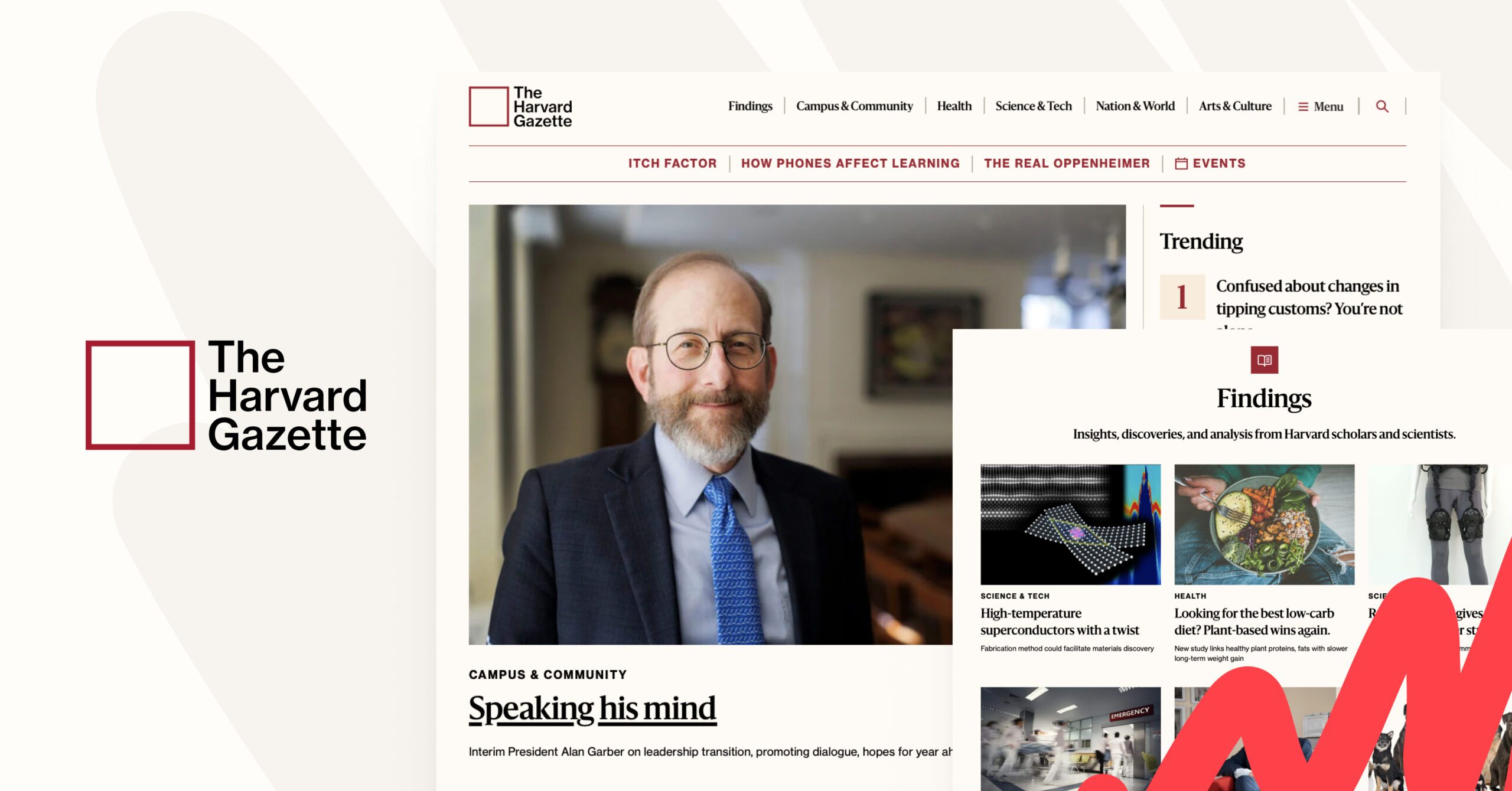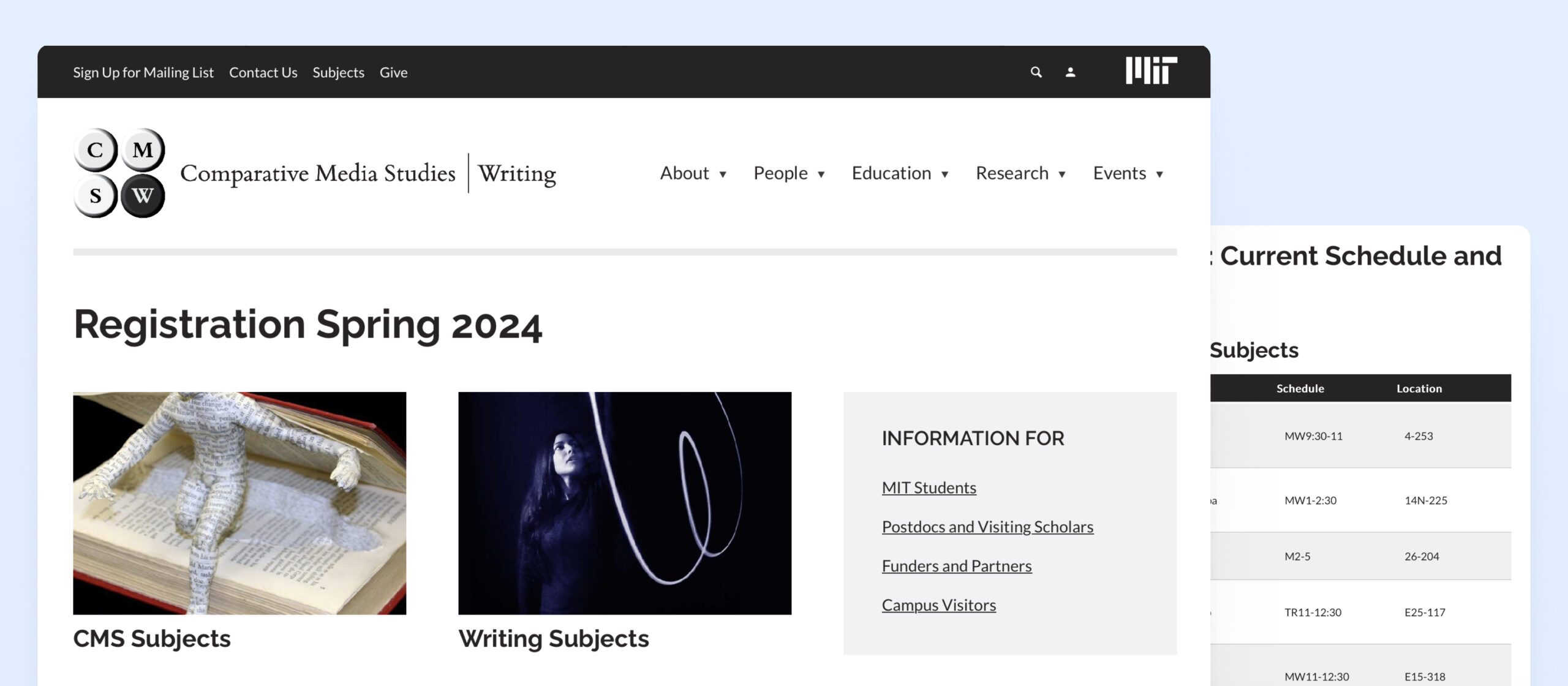When it comes to their digital presence, universities face unique challenges. From catering to diverse user groups and managing multiple content streams, to ensuring data security and first-class accessibility, there’s a lot for higher education institutions to think about when it comes to their website. Thankfully, help is on hand: WordPress, one of the most popular open-source CMS platforms in the world, is the perfect solution for university’s digital needs.
Let’s dive in to five of the top reasons why institutions like Harvard University choose WordPress.
1. User-friendly for diverse user groups
WordPress is renowned for its simplicity and ease of use, a crucial factor for universities where the content is often managed by a variety of people, from faculty members to administrative staff.
Harvard University’s use of WordPress for their main website and numerous departmental sites (as well as the recently redesigned Harvard Gazette, built in partnership with Human Made) showcases the platform’s user-friendliness, allowing staff across different levels of technical expertise to contribute effectively.

2. Efficient multisite management
Universities and higher education institutions often need to maintain a network of sites for different departments and programs. WordPress excels with its multisite capabilities, allowing seamless management of multiple sites from a single dashboard. The University of Washington is a prime example, utilising WordPress multisite to streamline their digital presence across various faculties and research centres.
3. Customisable for varied university needs
The ability to customise is vital in the education sector, where each department may have unique needs. WordPress’s extensive range of themes and plugins allows for exactly this level of customisation. MIT’s Comparative Media Studies/Writing program uses WordPress to tailor its site, effectively showcasing their unique programs and research projects.

4. Robust security for sensitive data
Security is paramount, especially when dealing with student and staff data as well as proprietary or sensitive research information. WordPress offers robust security features, which can be optimised with various plugins and regular updates. Additional security enhancements can be found through dedicated enterprise-level WordPress hosting solutions, such as Altis Cloud.
5. Cost-effective with strong community support
Budgets in higher education are often tight, making WordPress an attractive choice due to its cost-effectiveness, offering powerful capabilities without the hefty licensing fees associated with proprietary systems. Moreover, the platform is supported by a global community, providing a wealth of resources and shared knowledge.
Opting for an open-source CMS like WordPress is a strategic move for universities, aligning perfectly with the core values of academia such as openness, collaboration, and innovation. This model promotes continuous improvement and innovation, as users from around the globe contribute to the platform’s development, ensuring it stays at the forefront of technology and user experience.
Find out how higher education institutions can get more from WordPress.

Ultimately, WordPress offers a flexible, secure, and user-friendly platform that meets the diverse and evolving needs of higher education institutions. It’s not just a CMS choice, but a strategic asset for universities seeking digital excellence.
